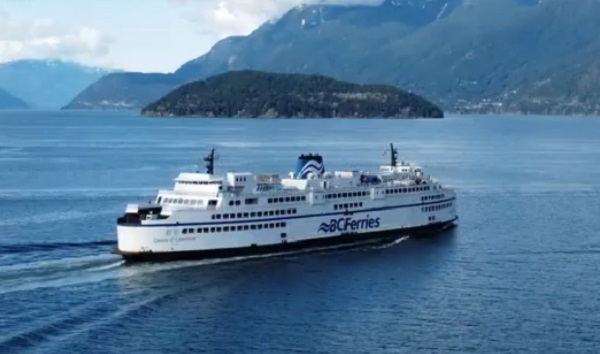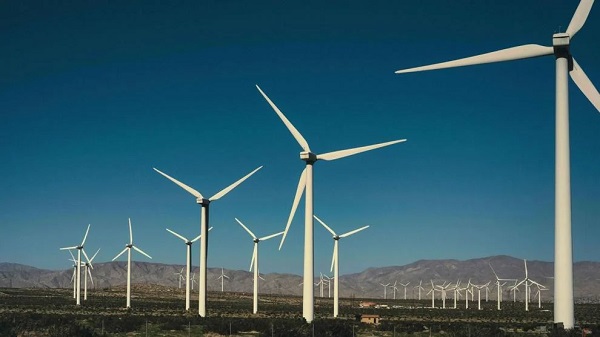Economy
Here’s how First Nations can access a reliable source of revenue
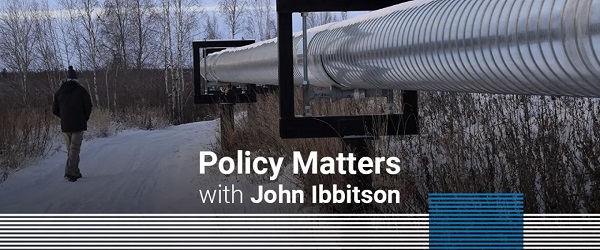
From the Fraser Institute
According to Pierre Poilievre, a Conservative government would permit First Nations to directly receive tax revenues from resource development on their ancestral territories. Political leaders of all parties should commit to such direct taxation. Because time is short.
Faced with the prospect of tariffs and other hostile American actions, Canada must build new energy infrastructure, mine critical minerals and diversify trade.
First Nations participation is critical to these plans. But too often, proposed infrastructure and resource projects on their territories become mired in lengthy negotiations that benefit only bureaucrats and lawyers. The First Nations Resource Charge (FNRC), a brainchild of the First Nations Tax Commission, could help cut through some of that red tape.
Currently, First Nations, the federal government and businesses negotiate agreements through a variety of mechanisms that establish the financial, environmental and cultural terms for a proposed development. As part of any agreement, Ottawa collects tax revenue from the project, then remits a portion of that revenue to the First Nation. The process is bureaucratic, time-consuming and paternalistic.
Under one version of the proposed charge, the First Nation would directly collect a portion of the federal corporate tax from the developer. The federal government, in turn, would issue the corporation an equivalent tax credit.
In effect, Ottawa would transfer tax points to First Nations.
“The Resource Charge doesn’t mean we won’t say no to bad projects where the costs to us are too high,” said Chief Darren Blaney of B.C’s Homalco First Nation, when the Conservatives first laid out the proposal last year. “It could mean, however, that good projects happen faster. This is what we all want.”
Poilievre referenced the proposed tax transfer in his Feb. 15 rally when he vowed to remove regulatory obstacles to fast-track resource development projects.
“We will incentivize Indigenous leaders to support these projects by letting companies pay a share of their federal corporate taxes to local First Nations,” he declared. “I want the First Nations people of Canada to be the richest people in the world.”
The First Nations Tax Commission first came up with the idea. Poilievre’s federal Conservatives are the first political party to embrace it. But there’s no reason why support for resource charges could not be bipartisan.
Mark Carney, the frontrunning candidate to succeed Justin Trudeau as Liberal Leader and prime minister, has vowed to use “all of the powers of the federal government… to accelerate the major projects that we need.” Supporting the FNRC would further that goal.
That said, resistance has already emerged.
“Most Indigenous leaders would see right through (what Poilievre said) because we’ve been around that corner a few times,” Dawn Martin-Hill, professor emeritus of Indigenous Studies at McMaster University, told the Canadian Press. “Selling your soul to have what other Canadians have, which is access to clean drinking water coming out of your tap, is highly problematic.”
But Prof. Martin-Hill inadvertently makes the case for the FNRC. Municipal governments raise funds by taxing the property of individuals and businesses and using the revenue to, among other things, provide clean drinking water. A First Nation that taxed a business operating on its territory, and used the revenue to provide clean drinking water for people on reserve, would simply be doing what governments are supposed to do.
Existing agreements, though cumbersome, have brought major new revenues to some reserves. The FNRC could increase revenues and First Nations autonomy.
Given the complexities of the tax code, and the limited administrative capacity of some First Nations, some agreements might see the federal government continuing to collect taxes and then remitting the First Nation’s portion to that government. The goal would be to ensure that revenues streams are transparent, predictable and support the greatest possible autonomy for each First Nation.
Any government committed to implementing the FNRC should convene a working group of First Nations leaders, private-sector executives and government officials to work out a framework agreement.
If the Conservatives win the next election, the working group could be part of a task force on tax reform that Poilievre said he intends to establish.
The FNRC would be voluntary. Communities could opt in or opt out. Provincial governments might also participate, sharing a portion of their taxes with First Nations.
If it works, a First Nations Resource Charge could speed the approval of lumber, mining, pipelines and other resource-related projects on the traditional lands of First Nations. It could provide reserves with stable and autonomous funding.
It’s an idea worth trying, regardless of which party forms the next government.
Economy
Reconciliation means clearing the way for Indigenous leadership

From the Resource Works team.
On Truth and Reconciliation Day, Canadians are asked to honour residential school survivors and to support the families and communities who must live with that history.
It also calls for action, not mere commemoration. The Truth and Reconciliation Commission called for structural change in Canada, and that means clearing the way for Indigenous leadership across this country.
Economic reconciliation is a practical journey that shifts decision-making and ownership towards First Nations and Indigenous people more generally.
Throughout B.C., First Nations are already practicing what that looks like. The Osoyoos Indian Band has built a diverse economy in tourism, wine, and recreation that has sustained steady jobs and revenue.
“I think all Native leadership need to get the economic development focus going on and make the economy the number one issue. It’s the economy that looks after everything,” Chief Clarence Louie has said. That sense of mission, along with assets like Nk’Mip Cellars and Spirit Ridge, has helped to turn Osoyoos into a B.C. success story.
On the coast, the Haisla Nation is leading in innovation in the LNG sector. In 2024, the Cedar LNG facility was granted a positive final investment decision, along with the Haisla’s majority ownership of the $4 billion project.
“Today is about changing the course of history for my Nation and Indigenous peoples,” said Haisla Chief Councillor Crystal Smith during the long approval process. By seeing the project through, Haisla ownership has created the means to fund language, health care, and opportunity for generations that had found all of that out of reach.
In the Lower Mainland, the Squamish Nation’s Sen̓áḵw development is one of the biggest projects in the Vancouver real estate market, and will become an asset for decades to come.
“This project is not just about buildings, it’s about bringing the Squamish People back to the land, making our presence felt once again in the heart of our ancestral territory, and creating long term wealth for the Squamish Nation,” said Council Chairperson Khelsilem.
The Squamish recently restructured the partnership so Squamish holds half of phases one and two and all of phases three and four, while welcoming OPTrust to a 50 percent stake in the early phases. Indigenous leadership is not just transforming the rural resource economy, but the urban one as well.
Chief Ian Campbell of the Squamish Nation, former chair of the Indigenous Partnerships Success Showcase event in Vancouver, has said that economic reconciliation is essential to the future of Canada.

“To move forward and reframe that complex dynamic, and put the lens on economic reconciliation, to me, is the path forward to create mutual benefits and values that benefit all Canadians, which includes Indigenous people,” said Campbell.
For governments and industry, there is a duty to align policy, permitting, and capital flows with Indigenous-led priorities. Beyond benefits agreements, reconciliation requires listening both early and attentively, and ensuring cooperation every step of the way.
The Bank of Canada itself has noted that “tremendous untapped potential exists”, but only when private firms and public agencies commit to economic reconciliation.
Listening also means resisting the temptation to cast Indigenous peoples as either monolithic supporters or opponents of development. Figures like Ellis Ross, former Chief Councillor of the Haisla, and his successor Crystal Smith have challenged these narratives, pointing instead to Haisla and neighbouring Nations’ experience with real jobs, careers, and community services tied to LNG and related infrastructure.
The Haisla message is straightforward: the path to revitalized language and culture runs through sustained opportunity and self-determination.
Truth and Reconciliation Day is a reminder that the past matters, and this is evident in the inequities of the present and in the possibilities now being realized by Nations that are reclaiming jurisdiction and building enterprises on their own terms.
Our task is to ensure public policy and corporate practice do not get in the way. On September 30, we remember, and then on October 1 and every day after, we have work to do.
Alberta
Taxpayers: Alberta must scrap its industrial carbon tax

-
Carney praises carbon taxes on world stage
-
Alberta must block Carney’s industrial carbon tax
The Canadian Taxpayers Federation is calling on the government of Alberta to completely scrap its provincial industrial carbon tax.
“It’s baffling that Alberta is still clinging to its industrial carbon tax even though Saskatchewan has declared itself to be a carbon tax-free zone,” said Kris Sims, CTF Alberta Director. “Prime Minister Mark Carney is cooking up his new industrial carbon tax in Ottawa and Alberta needs to fight that head on.
“Alberta having its own industrial carbon tax invites Carney to barge through our door with his punishing industrial carbon tax.”
On Sept. 16, the Alberta government announced some changes to Alberta’s industrial carbon tax, but the tax remains in effect.
On Friday night at the Global Progress Action Summitt held in London, England, Carney praised carbon taxes while speaking onstage with British Prime Minister Keir Starmer.
“The direct carbon tax which had become a divisive issue, it was a textbook good policy, but a divisive issue,” Carney said.
During the federal election, Carney promised to remove the more visible consumer carbon tax and change it into a bigger hidden industrial carbon tax. He also announced plans to create “border adjustment mechanisms” on imports from countries that do not have national carbon taxes, also known as carbon tax tariffs.
“Carney’s ‘textbook good policy’ comments about carbon taxes shows his government is still cooking up a new industrial carbon tax and it’s also planning on imposing carbon tax tariffs,” Sims said. “Alberta should stand with Saskatchewan and obliterate all carbon taxes in our province, otherwise we are opening the door for Ottawa to keep kicking us.”
-
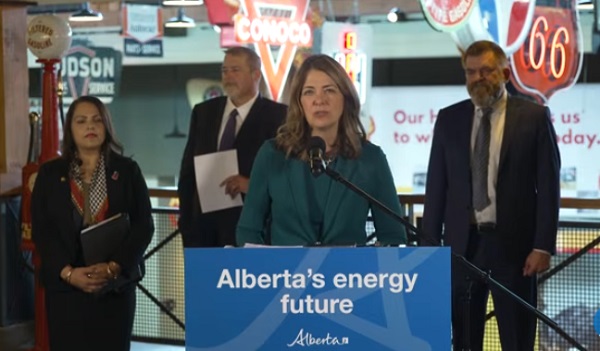
 Alberta1 day ago
Alberta1 day agoWith no company willing to spearhead a new pipeline under federal restrictions, Alberta takes the lead
-

 National2 days ago
National2 days agoCanada’s birth rate plummets to an all-time low
-

 espionage2 days ago
espionage2 days agoNorth Americans are becoming numb to surveillance.
-
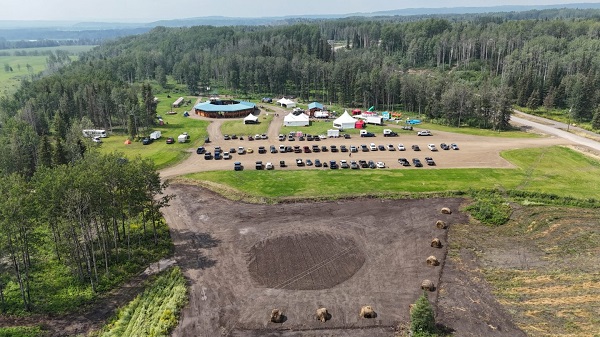
 Alberta1 day ago
Alberta1 day agoHalfway River First Nation makes history with Montney natural gas development deal
-

 Crime2 days ago
Crime2 days agoPierre Poilievre says Christians may be ‘number one’ target of hate violence in Canada
-

 Business1 day ago
Business1 day agoElon Musk announces ‘Grokipedia’ project after Tucker Carlson highlights Wikipedia bias
-

 Bruce Dowbiggin1 day ago
Bruce Dowbiggin1 day agoThe McDavid Dilemma: Edmonton Faces Another Big Mess
-

 Alberta1 day ago
Alberta1 day agoTaxpayers: Alberta must scrap its industrial carbon tax



